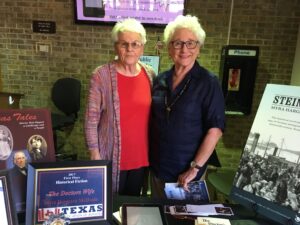Three Holland brothers—Milton, William, and James—were slaves born in the 1840s on Spearman Holland’s plantation near Carthage. Apparently their father was Spearman’s half brother, Capt. Bird Holland. Capt. Holland purchased his sons from Spearman and moved them to Travis County. Little is known of their early life except that Bird Holland served as a captain in the Mexican War (1846-48) until illness, probably cholera, forced him to resign and return home. He became chief clerk and assistant secretary in the state department and in the 1850s he took his three sons to Ohio where they were enrolled in Albany Manual Labor Academy, a private school that maintained the very unusual policy of admitting both black and female students.
After Texas joined the Confederacy, Bird Holland was appointed secretary of state until he joined the Confederate Army in November 1861. Meantime, sixteen-year-old Milton was in Ohio and eagerly volunteered for the U.S. Army, only to be turned down because of his race.
Milton and his older brother, William, may have joined a group of blacks that formed the Attucks’ Guard, which was named for Crispus Attucks, the first man (who was also black) killed in the Revolutionary War. The Attucks Guard marched to the governor’s mansion in Albany to offer their service, but they were turned down. It was not until June 1862 that Secretary of War Edwin M. Stanton allowed black Americans to enlist and even then they had to serve in separate units commanded by white officers with less pay than white soldiers. And, they were not allowed to rise above the rank of the non-commissioned officer.

While Milton waited for his opportunity to join the military, he used the skills he learned at the Albany Manual Labor University to work as a shoemaker for the quartermaster department. In June 1863 he joined the Fifth United States Colored Troops, and his older brother, William, joined the Sixteenth United States Colored Troops.
Although both brothers fought in several battles, it was Milton who rose to the rank of sergeant major. In late September 1864 while engaged in hand to hand combat at Chaffin’s Farm and then at New Market Heights, Virginia, all the white officers were either killed or wounded. Milton and three other black soldiers led the troops in routing the enemy and securing a victory that opened the door to nearby Richmond. Despite being wounded in the charge, Milton Holland continued to lead his men. For his extraordinary service Milton Holland was awarded the Congressional Medal of Honor on April 6, 1865, one of sixteen black soldiers in the Civil War to receive this country’s highest honor. Although he had been promoted to captain

in the field, the U.S. War Department refused to honor the commission because of his race. Ohio’s Governor David Tod offered to commission Holland as a captain if he would agree to be reassigned to another regiment as a white man. Holland refused the offer, declining to deny his racial identity.

During the war Milton’s father and former owner, Bird Holland, had risen to the rank of major in the Confederacy. While serving during the Red River Campaign as head of his regiment in the Battle of Mansfield on April 8, 1864, Bird Holland was killed.
Milton mustered out of the army and settled in Washington D.C. where he worked as a clerk in the U.S. Treasury Department and studied law at Howard University, graduating in 1872. He established a law practice, remained active in Republican politics, held offices in two black-owned banking businesses, and founded the Alpha Insurance Company, one of the first black-owned insurance companies in the country. After his death from a heart attack in 1910, he was buried at Arlington National Cemetery.

Milton’s brother William attended Oberlin College, returned to Texas and taught in several Texas schools, and held a position at the Austin post office. After moving to Waller County, he was elected to the fifteenth legislature where he sponsored bills establishing Prairie View Normal College (now Prairie View A&M University) and The Deaf, Dumb, and Blind Institute for Colored Youth, where he was superintendent for eleven years.
Born into slavery, both brothers served the United States with honor as freedmen.

Is there any information about third brother James? Or what happened to their mother?
Intriguing story. Would love to know more.
Fascinating story.
Thanks. The story hooked my interest.